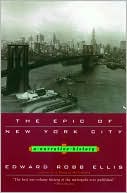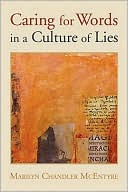A Case for Free Markets
Adam Smith’s Revolutionary Economic Theory in Wealth of Nations
[Analytical Essay written for a college Western Civilization class]
In 1776, Adam Smith penned An Inquiry into the Nature and Causes of the Wealth of Nations in order to discover the best economic policy a nation should follow. Ultimately, he concluded that a free-market system (in which the government had limited intervention in the marketplace) would lead to the most productive nation. Developing such revolutionary theories as the division of labor, the invisible hand, and freedom of trade, Smith successfully challenged mercantilist ideas and established capitalism as the policy that would bring the most wealth to a nation.
Up until the 18th century the policies of mercantilism had been adopted by nearly all European nations. Mercantilism taught that government regulation and intervention in the marketplace was essential for increasing national wealth. Europeans believed that the nation with the most capital was the wealthiest. For instance, Spain established its overseas colonies primarily to mine for gold and silver. Indeed, they focused on extraction, rather than colonization. But when Great Britain adopted the policies advocated by Adam Smith, their colonies prospered whereas Spain soon lost its standing as the preeminent world power.
First, Smith believed that one of the most important elements of a free society was the division of labor. Adam Smith explained the concept using the example of a pin factory. Each worker was able to specialize in the part of making a pin that he did best, instead of having to construct an entire pin on his own. Smith observed,
Each person, therefore, making a tenth part of forty-eight thousand pins, might be considered as making four thousand eight hundred pins in a day. But if they had all wrought separately and independently, and without any of them having been educated to this peculiar business, they certainly could not each of them have made twenty, perhaps not one pin a day.Thus, the division of labor allowed an increase in production and would be a driving force behind progress, as evidenced when Henry Ford invented the assembly line and revolutionized the factory. Smith’s argument for the division of labor was also an argument for machinery. He writes, “I shall only observe, therefore, that the invention of all those machines by which labor is so much facilitated and abridged seems to have been originally owing to the division of labor.” Further, Smith’s concept of the division of labor need not only be applied to the individual worker. Indeed, his analogy of the pin factory is applicable to entire nations as well. If Holland is better at fishing and Britain is better at growing wheat, they should not try to out produce each other or compete at fishing or the growing of wheat. Rather, Britain should concentrate on growing wheat and Holland should perfect their fishing. They can then trade those commodities with each other. In that way, Britain will be able to devote its time to a trade that it does best and Holland will be able to devote its time to the trade that it does best. Ultimately, Smith’s theory benefits the individual and the nation as a whole.
Second, Smith argued that the reason the division of labor worked so well was because of a principle he called the Invisible Hand. Smith writes, “By directing that industry in such a manner as its produce may be of the greatest value, he intends only his own gain, and he is in this, as in many other cases, led by an invisible hand to promote an end which was no part of his intention.” Self-interest, according to Smith, was the guiding principle in a free market system. He noted that the division of labor worked so efficiently because, “It is the necessary, though very slow and gradual consequence of a certain propensity in human nature which has in view no such extensive utility; the propensity to truck, barter, and exchange one thing for another.” Smith’s theory can be explained with the following illustration. A person has two loaves of bread, but he only wants one and would also like a glass of water. Another person has two glasses of water, but would like a loaf of bread as well. Thus, these two people can exchange the glass of water and the loaf of bread. Each person acted out of self-interest. If the second person did not have a glass of water, the first person would not have traded his loaf of bread with him but found another person with whom he could have traded for something that he wanted. Ultimately, this small transaction mirrors what happened in Smith’s pin factory and in other business in the marketplace. Each individual transaction may seem disconnected, but Smith believed they were all guided by an invisible hand and worked together to bring about the ultimate good for society. It is important that Smith pointed to the invisible hand and not to the government. It was not the government’s job to meddle in the individual transactions or try to divide up labor on its own. The government should not step in and appoint one man to the job of shoe maker and another to the job of baker. They lacked the knowledge to oversee such a vast and impossible task. Rather, the market place must be left to its own design. People’s self-interest was enough to benefit the nation.
Third, and, finally, as partly seen in the preceding paragraph, Smith advocated the freedom of trade. In one instance, he writes, “Labor, therefore, is the real measure of the exchangeable value of all commodities…The real price of everything, what everything really costs to the man who wants to acquire it, is the toil and trouble of acquiring it.” Thus, Smith argued against the government fixing a price on commodities. It would be impossible for the government to decide what the price milk or butter or any other commodity should be, because that was the realm of the consumer. Only the consumer could put a price on a commodity and the producer alone should decide if it was worth him selling his commodity at such a price. Further, Smith argued against the giving of bounties, pointing out that “the real effect of the bounty is not so much to raise the real value of corn as to degrade the real value of silver” and forces “some part of the industry of the country into a channel less advantageous than that in which it would run of its own accord.” Smith saw both bounties and treaties of commerce as destructive, because they gave merchants an unfair monopoly. Ultimately, the price of goods would be negatively affected. As previously stated, prices should be fixed by the individual producer and consumer. By giving a nation an unfair monopoly, another nation was unable to compete in the marketplace. The nation with the monopoly could then raise its prices. This would be destructive to the consumers.
In conclusion, Smith’s economic work established free-market capitalism as superior to mercantilism. While mercantilism urged extensive intervention and regulation in the marketplace, Smith proved that this would be destructive to the wealth of the nation. If a nation truly wanted to build up its wealth and make itself prosperous, it would allow its citizens to interact according to their own self-interest, progressing through the division of labor, and working towards the good of society by the oversight of an invisible hand. Nations did not need to increase their wealth by storing up capital but by exercising free trade. Indeed, the nations that adopted Smith’s economic theory, like Britain, soon became the leading world powers.
Labels: book reviews, bookish musings, literary criticism
Posted by Nicole Bianchi at 5:52 PM
|
![]()












.jpg)
























 This is life seen through the eyes of a writer. A blog that critically examines literature, music, and film. NB, initials which coincidently coinside with the Latin words "nota bene" (mark well), belong to the blog poster, a bibliophile who likes to haunt libraries and book stores, talk about all things bookish, and ramble at any length on things regarding literature. Many of the articles posted here were written as essays for high school and college.
This is life seen through the eyes of a writer. A blog that critically examines literature, music, and film. NB, initials which coincidently coinside with the Latin words "nota bene" (mark well), belong to the blog poster, a bibliophile who likes to haunt libraries and book stores, talk about all things bookish, and ramble at any length on things regarding literature. Many of the articles posted here were written as essays for high school and college.





